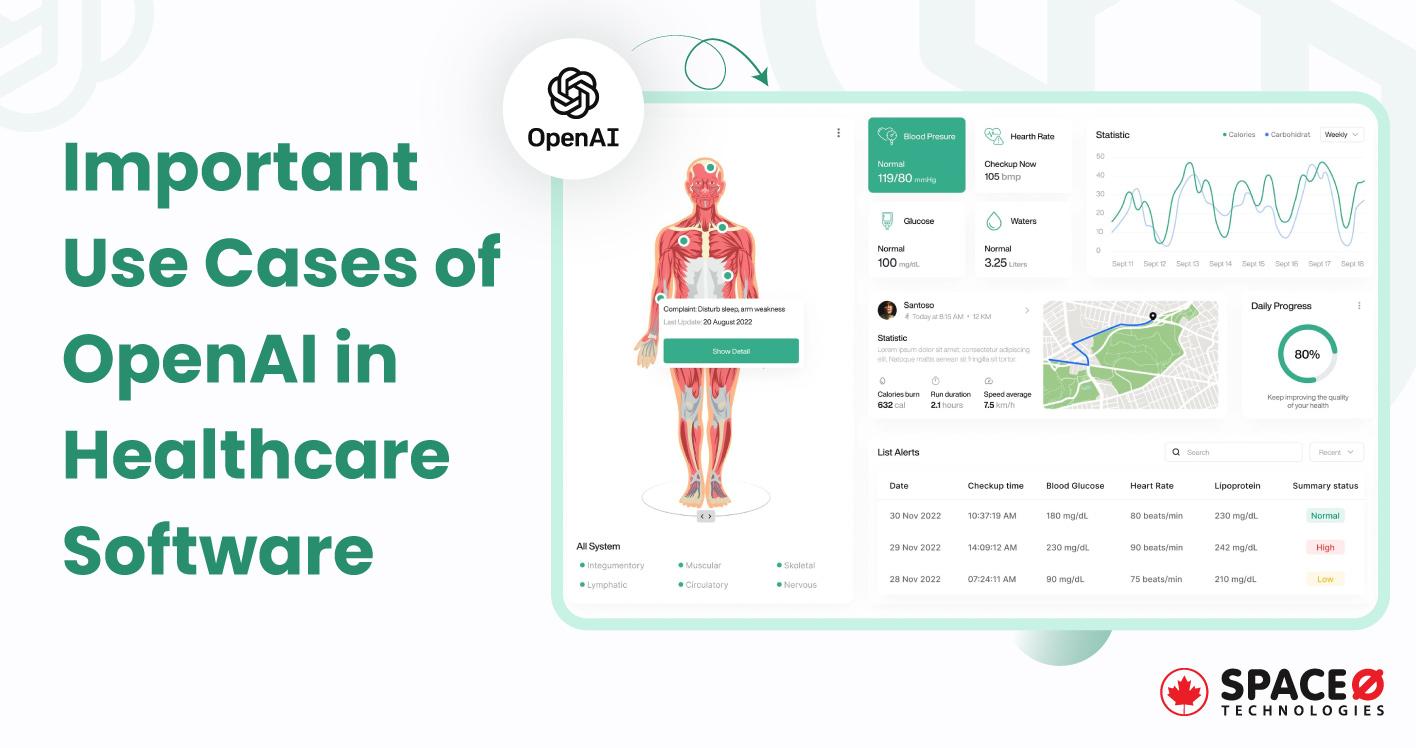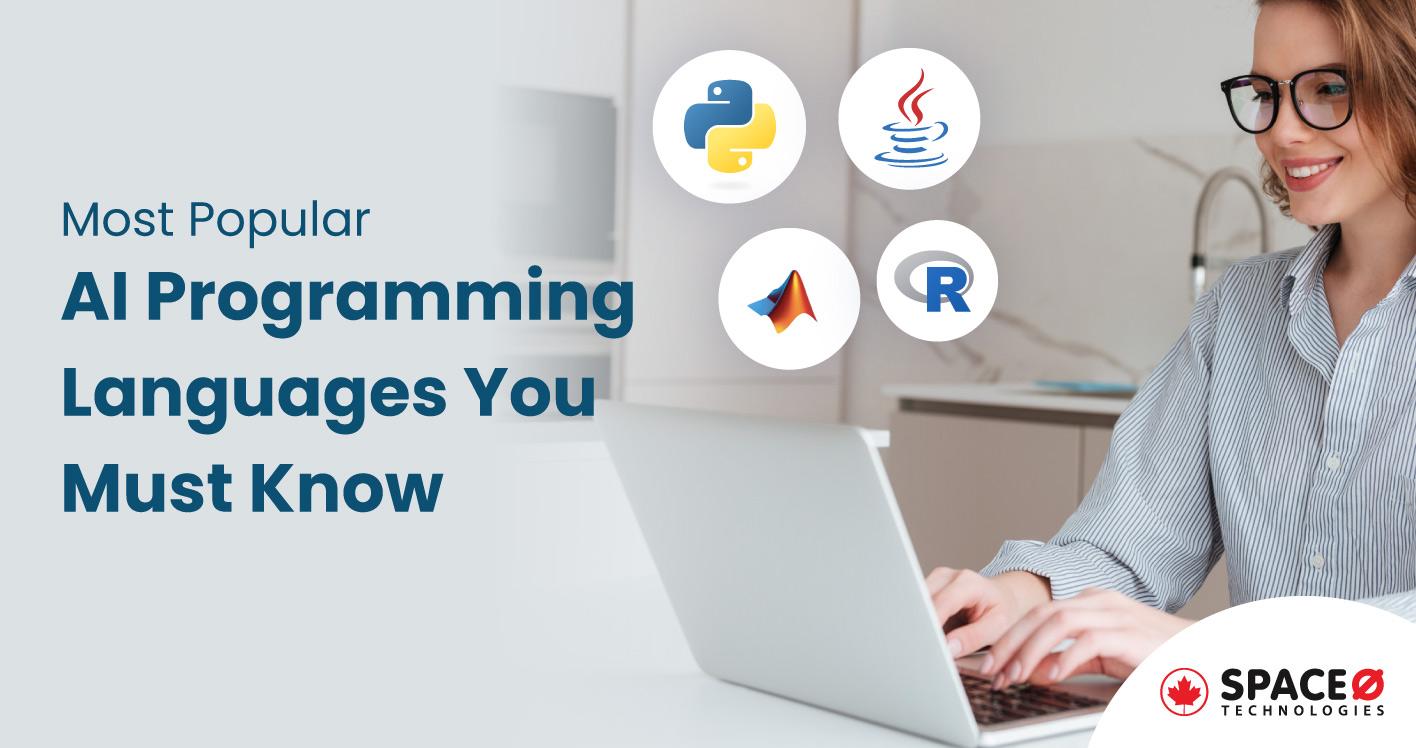
5 Use Cases of Using OpenAI’s API in the Healthcare Industry
Are you looking to implement OpenAI technology into your healthcare software solution? Or do you want to know about the use cases of integrating OpenAI into a healthcare software solution?
Here is a blog post for you.
According to a report of InsiderIntelligence, the impact of AI and ML in healthcare software drives 23% of very effective results in clinical outcomes, 19% of operational outcomes, 17% in health system efficiency, 13% of administrative performance, 12% of financial outcomes, and 12% of customer engagement.

No doubt that AI helps in multiple ways to improve your healthcare institute and software. But, you might want to know which different areas of healthcare get improved by implementing OpenAI technology. That’s why we have written this blog to answer your question.
In this blog, you will learn about the five top use cases of OpenAI’s API in the healthcare industry. So, let’s get started.
Table of Contents
As a reliable OpenAI software development company in Canada, we know the process of how to develop AI Software using OpenAI technology and understand the growth of AI and ML technologies in healthcare and other industries. Based on our study of using OpenAI in healthcare, here are the 5 use cases you must know before integrating OpenAI into your healthcare software solution.
5 Core Use Cases of OpenAI in the Healthcare Industry
Improved Clinical Decision-making
Challenge: Data plays an important role when it comes to making decisions about patient care. If data is fragmented, inconsistent, and difficult to access, this makes it difficult for healthcare professionals to get a unified view of a patient. The fragmented data results in incorrect or incomplete recommendations and predictions from CDS systems.
Solution: Integration of OpenAI technology to integrate data from multiple sources, such as electronic healthcare records (EHRs), medical imaging, and wearable devices for getting a detailed view of patients. Moreover, OpenAI technology helps to clean, organize, and normalize the data quality to improve the efficiency and accuracy of CDS systems. This results in the minimum errors and inaccuracies.
Faster and Improved Drug Discovery Process
Challenge: The process of drug discovery is complex and time-consuming as it involves multiple stages, such as identifying patterns, and developing and testing new chemical compounds to find the right combination for treatment purposes. There are chances of limited understanding of the disease’s mechanism which results in difficulty in finding an effective drug for treatment. In addition, it becomes difficult to predict how the drug will interact with the body and whether there will be any side effects or not.
Solution: Integration of OpenAI technology helps you to analyze large and complex datasets like genomics, proteomics, and molecular data efficiently to identify the potential drug. Moreover, OpenAI can also help to automate the drug screening process so you can save time and cost associated with the manual screening process. Not only this but OpenAI can also be used for chemical modifications to improve its efficacy and toxicity. OpenAI technology can also be useful to create predictive models that help to stimulate the behaviour of drugs in the human body so researchers can find the potential side effects and interactions before any clinical trials.
AI-powered Chatbots to Improve the Patient Care
Challenge: Due to long waiting times, patients may need to wait for hours for basic treatments that can offer relief in an instant. Moreover, when there is an emergency and no healthcare professionals are available in an instant, the chances of basic survival decrease. During odd timing, there are chances that you might not find the doctors or healthcare professionals to get treatments. All these challenging conditions demand a solution that can provide instant assistance to patients or victims and get their life saved.
Solution: The use of OpenAI to create powerful chatbots becomes a helpful way to resolve the above challenge. AI chatbots for patient care help in multiple ways, such as improved access to information, 24/7 availability, improved communication, cost savings, and increased efficiency. With the use of OpenAI technology, you can create powerful AI chatbots that can help by assisting patients in reducing the costs of healthcare.
Enhanced Electronic Health Record Analysis Systems
Challenge: In the current EHR analysis systems there are multiple problems healthcare professionals are facing, such as data integration from multiple sources, quality of data, unstructured data, limited data access, inaccurate and delayed real-time monitoring, and difficulty to analyze complex data. Due to all these problems, the EHR analysis systems fail to provide an accurate diagnosis, decreasing the efficiency and productivity of healthcare organizations. Lastly, healthcare organizations face negative consequences, such as poor patient outcomes, increased medical errors, increased healthcare costs, and reduced trust in your healthcare system.
Solution: With the use of OpenAI’s NLP and ML technologies, you can easily integrate data from multiple sources for accurate analysis. With the OpenAI algorithms, it becomes easy to improve the accuracy of your EHR system by correcting the errors and inconsistencies in your software data. In addition, it also analyzes unstructured data to exact insights that become useful to doctors and nurses. OpenAI also helps to improve the real-time data processing of EHR analysis systems so doctors can identify diseases at an early stage and start the treatment accordingly.
Predictive Analytics for Patient Health Outcomes
Challenge: No healthcare software or system can monitor and predict the likelihood of outcomes for patients. So, forecasting the patient outcomes, such as chronic conditions, adverse events in health, or any major problems is difficult to predict. Because if any prediction is inaccurate, then the chances of critical health issues can be found in your patient. However, having predictive analysis software can help healthcare professionals into improved clinical decision-making, support proactive care, and proper disease management.
Solution: The use of OpenAI technology helps to improve the predictive analytics for patient outcomes in multiple ways, such as through advanced algorithms to analyze a large amount of patient data, improve the accuracy of predictions by incorporating data, real-time monitoring for early detection of diseases, and automated analysis to increase the speed and efficiency of decision making at a critical time. This way, the use of OpenAI technology can help you to improve your overall predictive analysis systems.
Looking to Build Healthcare Software?
We are a reliable OpenAI software development company in Canada, having successfully developed 300+ custom mobile and software solutions.

If you are looking to create a chatbot for your medical organization, here is our blog post on the process of developing an AI medical chatbot using OpenAI technology. Get insights into how developing an AI medical chatbot helps optimize your business’s organization and provides advancement in managing the entire process from registration to discharging of patients.
Want to Integrate OpenAI’s API into Your Healthcare Software?
Discuss your requirements with us. Our AI software consultants will help you from validating your requirements to the deployment of your software.
These are the core five use cases of using OpenAI technology in the healthcare industry. Still, do you have doubts regarding OpenAI technology? Check the FAQ section below.
FAQs About Use Cases of OpenAI in the Healthcare Industry
Which OpenAI models can be used in healthcare software solutions?
Several models can be used in healthcare software solutions.
- GPT-3
- DALLE-2
- OpenAI Gym
How secure is OpenAI technology in healthcare?
The OpenAI technology is bid to the HIPAA act. To ensure the data of the patient is secure, they use secure data storage, access controls, and encryption methods to protect sensitive information about the patient.
How do OpenAI-powered chatbots improve patient care?
With the use of OpenAI technology, you can make AI-powered chatbots that can be beneficial in the following ways to your patients.
- 24/7 availability to assist patients
- Chatbots automate repetitive tasks and free up healthcare professionals
- Understands the patient’s needs and provides personalized care
- Easily accessible anywhere and assists
Let’s Use OpenAI Technology to Create Powerful Healthcare Software
In this blog, you have learned about the five core use cases of OpenAI technology in the healthcare industry. From improving your CDS systems to predictive analytics of your healthcare system, OpenAI certainly can revolutionize the healthcare industry from three points which include data, healthcare care services, and operational management of healthcare institutes.
If you are looking to implement OpenAI technology or want to develop AI-based features for your healthcare software, you can surely contact us. We are a reliable AI software development company, having successfully developed 300+ custom software and mobile software solutions.

Looking to Develop a Healthcare Software?
Editor's Choice

Top 9 AI Software Development Companies [A Curated List]

8 Most Popular ML and AI Programming Languages to Use in 2025

How Much Does It Cost to Develop AI Software Using OpenAI? [A Complete Guide]
All our projects are secured by NDA
100% Secure. Zero Spam
*All your data will remain strictly confidential.
Trusted by


Bashar Anabtawi
Canada
“I was mostly happy with the high level of experience and professionalism of the various teams that worked on my project. Not only they clearly understood my exact technical requirements but even suggested better ways in doing them. The Communication tools that were used were excellent and easy. And finally and most importantly, the interaction, follow up and support from the top management was great. Space-O not delivered a high quality product but exceeded my expectations! I would definitely hire them again for future jobs!”

Canada Office
2 County Court Blvd., Suite 400,
Brampton, Ontario L6W 3W8
Phone: +1 (437) 488-7337
Email: sales@spaceo.ca

